SUNDAY JOINT, 6-11-2023: AGING AND RAGING—A SALUTE TO FEARLESS OLD SURFERS

Hey All,
Deep in the weeds here at Encyclopedia of Surfing HQ, spit-shining every page before gently, carefully moving it to the new platform. We’re still a few weeks out, and I’m adding an extra few days at least to account for all the time where I’m side-tracked looking at posts I haven’t seen for years, some of which go back to 2013. A few things have stuck out. Mostly, and I’ve come back to this again and again, is the difference between younger and older surfers when it comes to conversational style, verve, and boldness. Not always, but in general. This isn’t a surf thing, of course. But the wave-riding bit does throw the idea into sharp relief, and it seems like we’ve got something like a zero-sum game here, with youthful physical aggression and boldness and confidence being transferred, later in life, to similar qualities in thought and expression.
I’m thinking of Flippy Hoffman’s affectionate and comically pustulating look back on his early visits to Hawaii, living rough at Makaha and on the North Shore.
Or my 2014 interview with Joyce Hoffman, when I asked about after-hours debauchery surrounding the 1965 World Championships. Oh yes, Joyce replied, she’d heard all about it, but wasn’t herself involved, being too young (17) and also because she was “such a stick-in-the-mud.” But her Peruvian visit wasn’t without its own social drama, which happened to take place in broad daylight: “What I remember was [contest director and wealthy Club Waikiki member] Eduardo Arena chasing me around the pool. He was kind of a lech, and really used to getting his own way, and I just remember being kind of horrified that I was having to put pool chairs between me and the contest director, for God’s sake.” That’s Joyce and Eduardo, below, during the awards ceremony, with woman’s finalist Candy Calhoun on the left giving what looks to me like a gesture of weary sympathy on Hoffman’s behalf.
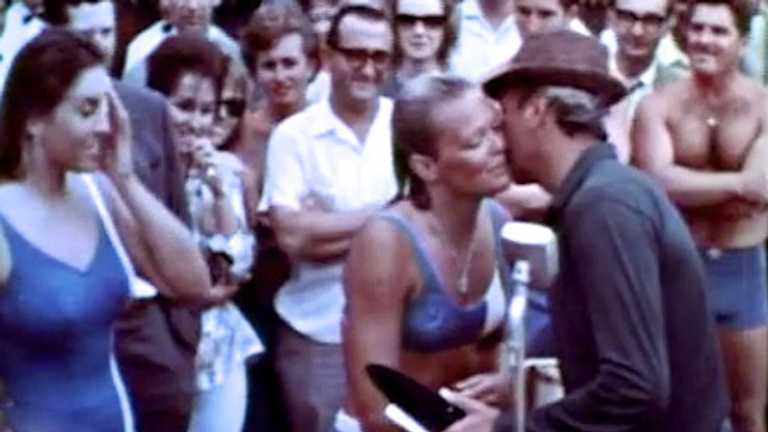
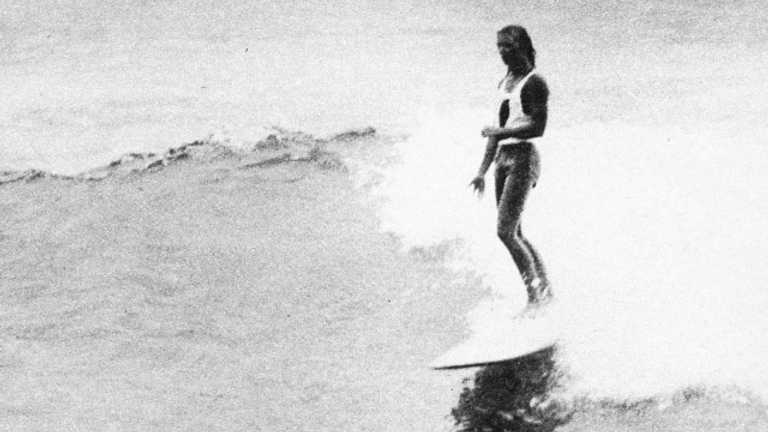
The first time I came out in favor of the older surfer’s perspective was in 2014’s “Five Best Interviews in Surfing,” with Fred Van Dyke easily holding down the Number One position. Nothing over the past 10 years has changed that top ranking—I will spread the Word of Van Dyke from now until I am called; I am John to Fred’s Jesus, except of course Fred himself would no doubt prefer I change metaphors. Here’s an excerpt from an interview I did with Van Dyke in 2005, and it is honest and funny, humane and immensely readable, start to finish, and I literally could pick a quote at random and it would catch your eye but let’s go with this one:
Have you always been kind of an anti-establishment guy?
Sure. Starting, probably, with religion. I was raised a very strict Catholic, went to a really strict Catholic school, and I was disciplined constantly—sometimes way beyond what was called for. Once I started thinking for myself, the first thing I did was throw out everything I learned from the church.
When was this?
Late teens, around there. I was confused about a few things when I started college, and didn’t know where to go, so I thought, “Well, I’ll go to the bishop.” So in I go, and I ask him these really deep important questions about where my life was heading, and what was I supposed to do—all these things that were really bothering me. After I was finished the bishop sits back and looks at me, and says “Faith, son. You must have faith.” That’s it. I go “Thank you, Father,” got up and left and thought to myself, “Screw this. No more religion.”
Do you still feel that way?
I have reverence. I have a great deal of reverence, especially for nature. But I have no reverence for the church or the demagogues in the church.
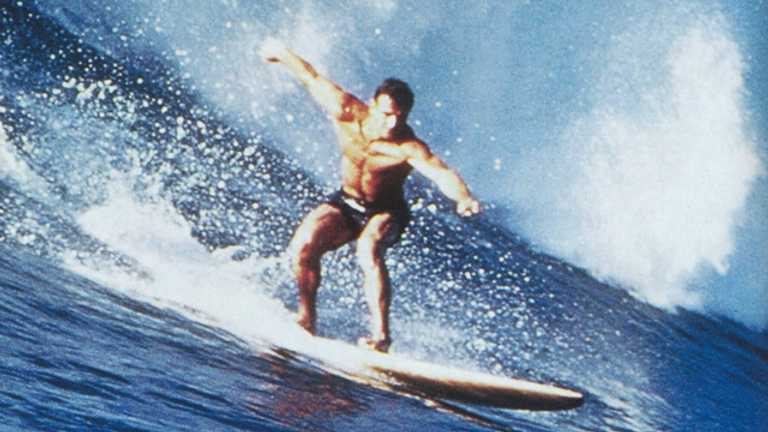
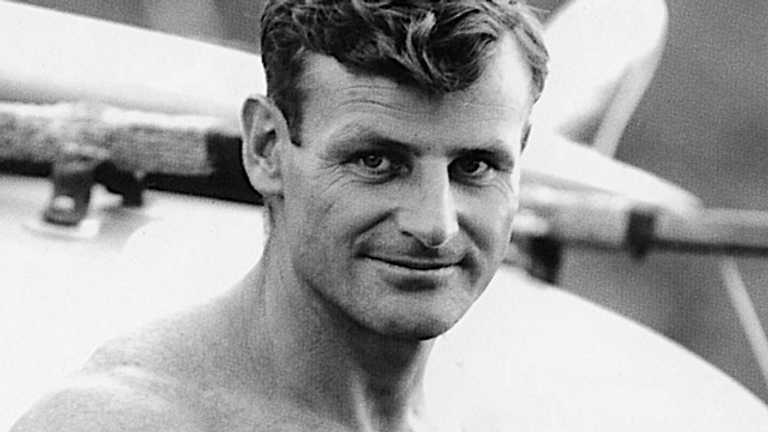
Steering things closer to home, I also asked Fred about the contradiction of him serving as event director for the Makaha International, and a founder of the Duke Kahanamoku Invitational, yet also famously going on record as saying surf contests are mostly pointless.
You aren’t really a big fan of surf competition in general.
No, not at all. Contests, most of them, are totally ridiculous. Ludicrous. There’s enough competition happening out in the water just on a day-to-day basis. There’s already plenty of competition, is what I’m trying to say. I remember this day at Sunset, probably in the late ’50s, all of us were out there, Peter [Cole] and Buzzy [Trent] and Ricky [Grigg], the whole gang. Fantastic surf all afternoon. And at the end of the day, we walked up the beach, and we all looked at Ricky. It was his day. We all knew it. There’s your winner.
Grigg himself, in his later years, especially after rebounding (temporarily) from throat cancer, had a fearless and wonderfully clear-eyed take on surfing. I also talked to him in 2005—I was doing a profile on Van Dyke, and wanted to hear from Fred’s oldest surfing friends—and the topic of surfing longevity came up.
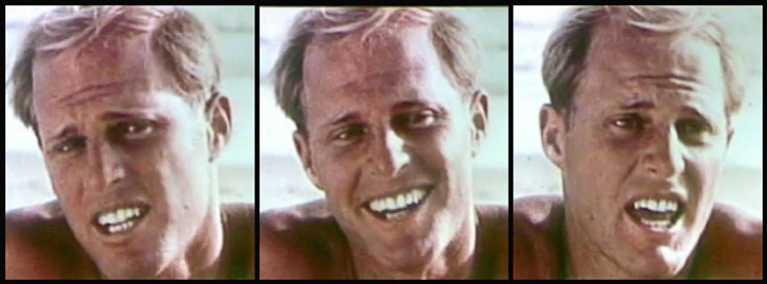
It’s interesting, who quits surfing and who doesn’t. From your crew, you and Peter still surf, but Fred, Greg [Noll], and Buzzy [Trent] all stopped.
Well, Greg rode big waves for the show of it. Greg was a matador. Buzzy was the same way. Or no, Buzzy was a gladiator. The whole point was to get out there and conquer. He still is. He has basal cell skin cancer, just breaking out all over his body. He won’t get chemo or radiation, he just goes in and lets ’em cut lesions off as they appear. He looks like a warrior who’s been through a hundred battles. I’ve been working on a story about Buzzy for years. It’s taken forever for us to get it done. And then finally it was like . . . he’s got cancer and I have cancer, and we’re both fuckin’ dying. And he just said, “Let’s do it.”
Buzzy lives in town?
He lives in this tiny little apartment. He’s poor, he’s in pain, has nothing left but his dignity and humility. But he gets up every day and he walks, he walks for miles and just tells himself optimistic things. Buzzy refuses to be pessimistic or depressed. Surfing is totally a thing of the past for him. He tells me, “Ricky, I’ve done it, I proved myself, it’s over. I did it.”
When I asked Grigg about his own surfing life at that point, he at first seemed ambivalent. He’d been “driven out” of his longtime North Shore residence by crowds and “commercialism and contests,” and lived on the east side of Oahu, “where the surf is so shitty that hardly anybody goes out.”
But Grigg then made the most gracious and succinct and eloquent pivot I’ve ever heard, and I’ll reprint it here in full, because I think this is as close as we’ll ever get to having a surf-life North Star.
It’s usually onshore over here, and small, and looks terrible from the beach, so I have these little spots where I go out and surf alone. But I still have a great time. Surfing is more important to me than it was 40 or 50 years ago. Not the turns and tube rides and all that. I’m just a kook out there. But just getting in the ocean. Those moments of beauty and solitude and peace. It’s like, surfing still, after all these years, somehow makes things okay. The world’s fucked up and we’re fighting a war we shouldn’t be fighting [in Iraq], and everything is just as wrong as it could be, but somehow, I go surf, and things are wonderful. To be out there is total happiness. Pure joy. To this day.
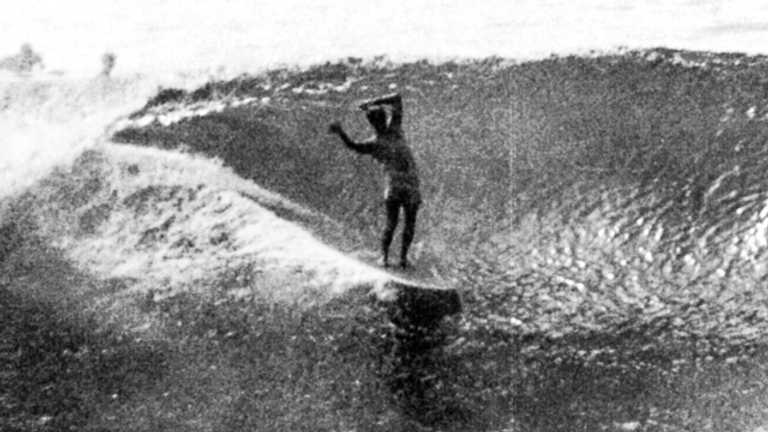
Thanks for reading, and see you next week.
Matt
[Photo grid, clockwise from top left: Jesus and John the Baptist; Joyce Hoffman, Pupukea, 1968; Makaha International competitors, 1966; Ricky Grigg at Waimea, by John Severson; Joyce Hoffman; Fred Van Dyke. Hoffman and Eduardo Arena, 1965 World Championships. Hoffman at Makaha, 1963. Fred Van Dyke surf photo by Don James. Van Dyke portrait by Ron Church. Ricky Grigg frame grab set. Grigg surfing Big Rock, 1968, by Doug Moranville]